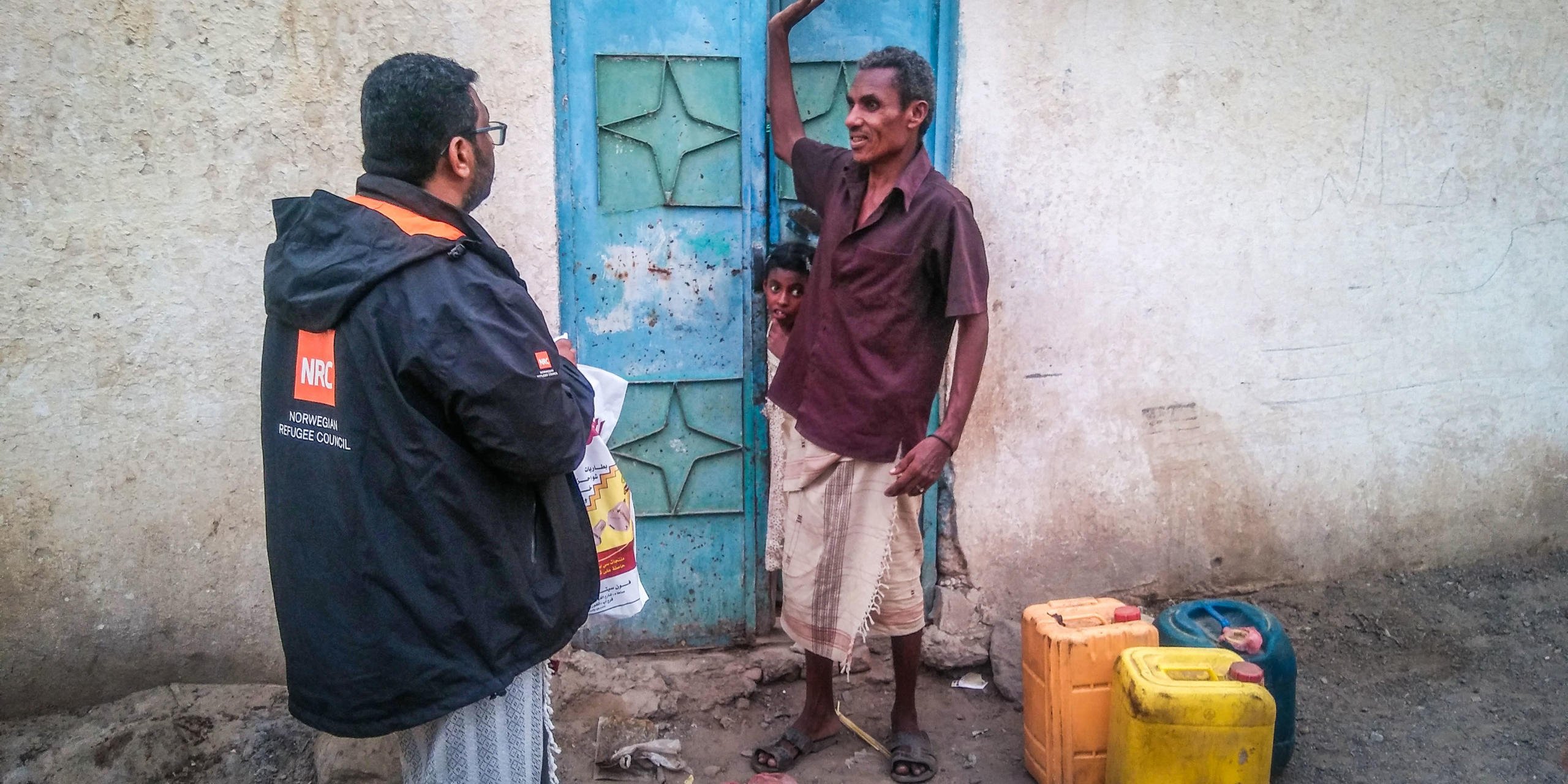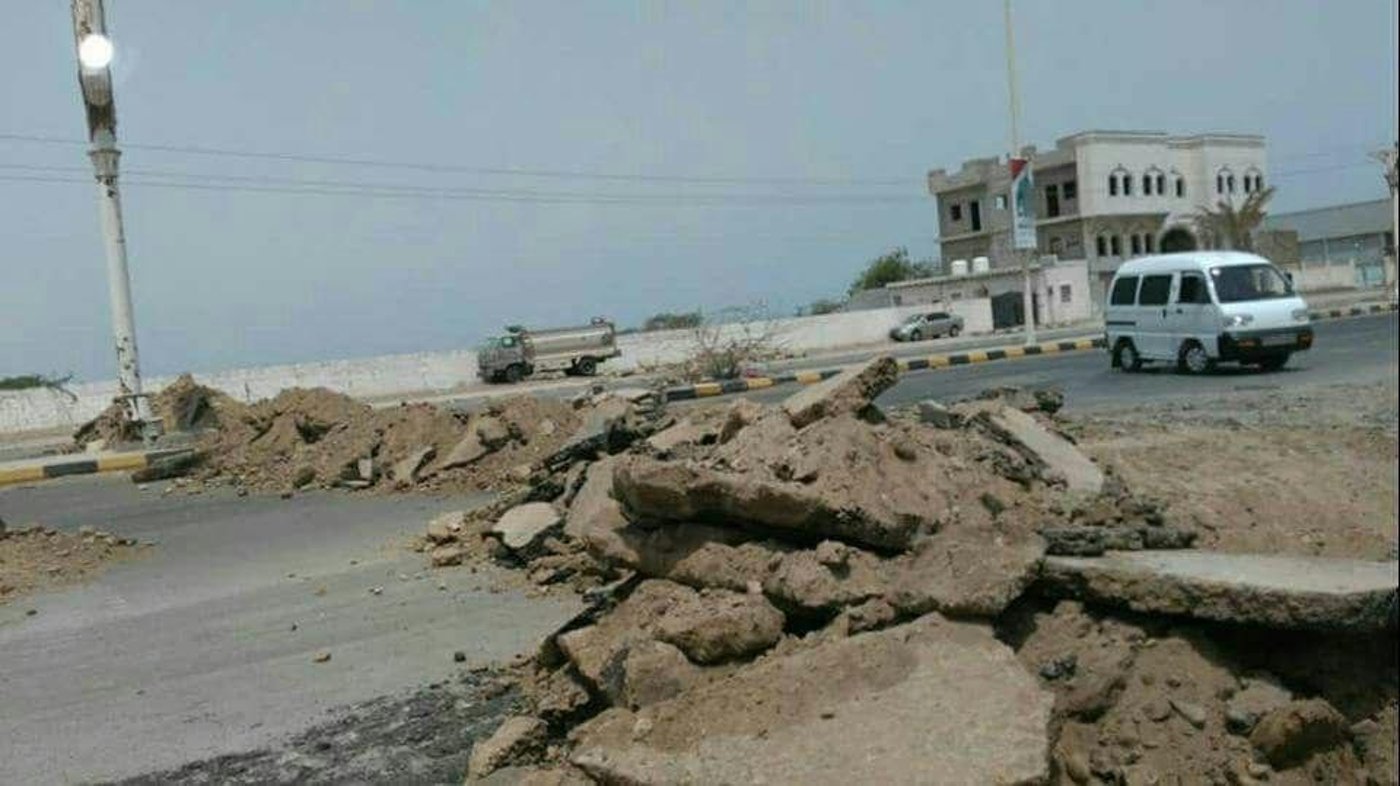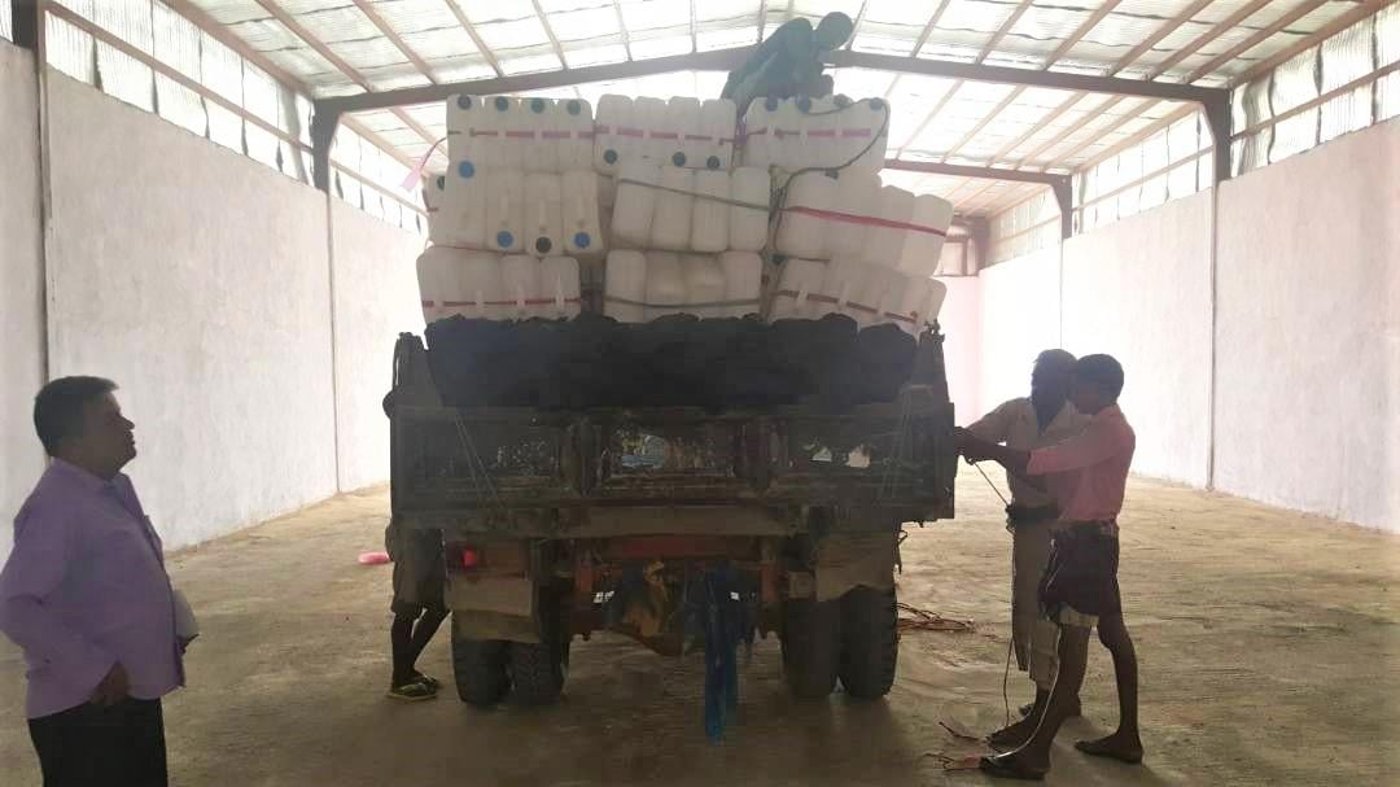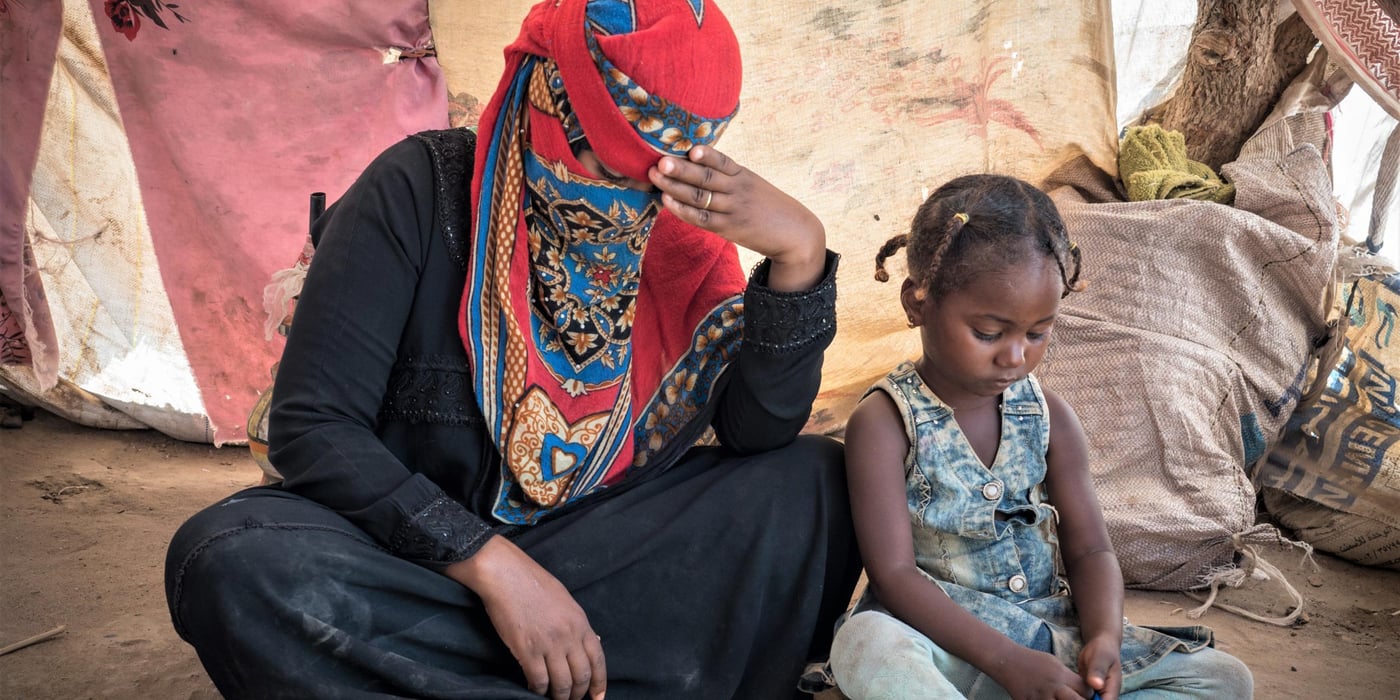
I juni meddelade den saudiledda koalitionen att den kommer att erövra hamnstaden Hodeidah med militär makt, och mer än 35 000 familjer av områdets 3,2 miljoner invånare har blivit fördrivna sedan den 1 juni. Men de flesta vill eller kan inte fly och lämna sina hem och allt de äger.
NRC:s medarbetare arbetar intensivt för att säkra fortsatta leveranser av mat och nödhjälp, och för att nå fram till de mest utsatta.
– Människorna i Hodeidah lever fortfarande i ett vacuum och måste bestämma sig om de ska fly – och lämna sina jobb, vänner och ägodelar – eller om de ska stanna, utan någon som garanterar deras säkerhet, säger Suze van Meegen, rådgivare för NRC i Jemen.
Även om man avvaktar en fullskalig militärattack på Hodeidah medan diplomatiska samtal pågår, kan konflikten eskalera snabbt, betonar van Meegen. Under tiden försämras förutsättningarna för civila och hjälparbetare på plats.
Många tvingas på flykt flera gånger
Ständigt pågående krig har tvingat många att fly för livet flera gånger. Ingen vet när de kommer att kunna återvända hem.
– Igår träffade vi en grupp nyligen fördrivna personer i Hajja. De hade inte fått med sig något annat än kläderna som de stod och gick i. De hade sökt skydd under träd för att undvika den stekheta solen och bitande sandstormar, säger NRC:s Hussein Qais, som arbetar med att ge människor mat.

Många har fördrivits både två och tre gånger.
– Människor lever i konstant rädsla för att konflikten kommer att driva dem bort igen, tillägger han. När jag träffade familjer i Abs-distriktet hörde jag hela tiden skottlossning och raketnedslag.
Jemenitiska hjälparbetare hjälper sitt folk som lever i djup nöd, medan aktörer utanför Jemen bestämmer vad som händer framöver.Suze van Meegen
Konflikter och rörelserestriktioner har gjort det svårt att nå ut till människor som behöver livsnödvändig hjälp.
– Även våra anställda fruktar för sina familjers säkerhet, och de är chockade över det enorma behovet av hjälp i Hodeidah, men de fortsätter att gå till jobbet varje dag, säger van Meegen.
Som en viktig humanitär aktör i landet arbetar vi för en vapenvila och ett slut på restriktioner som påverkar humanitära organisationers möjlighet att hjälpa civila.

Hundratusentals är i behov av akut nödhjälp
Hodeidas invånare är i desperat behov av mat, vatten och mediciner. NRC stöder de mest utsatta med pengar, så att de kan skaffa sig det allra livsnödvändigaste.
– Vi registrerar de fördrivna och skaffar livsmedel, pengar, tak över huvudet och hygienprodukter till dem så snabbt som möjligt, säger Ali Aljhajori, som leder vårt beredskapsteam i Hodeidah.
Under tiden stiger temperaturen uppåt 40 grader i Hodeidah, där vattenförsörjningen har skurits av i stora delar av staden. Många människor är beroende av vatten från brunnar vid moskén och risken för förorening är hög. Det har varit 162 000 fall av kolera sedan april 2017.
Vårt team arbetar nu dygnet runt för att återuppta arbetet som en följd av kolerautbrottet i Hodeidah, efter att de lokala myndigheterna avvaktar med arbetet av säkerhetsskäl.
Vi är väldigt oroliga för dem som har fått fly från sina hem.Ali Aljhajori

Ekonomisk kollaps
Medan hotet om ökade stridshandlingar och våld driver människor på flykt från sina hem och hindrar dem från att arbeta, har tiotusentals förlorat sina fasta intäkter. Akut varubrist har också lett till att priserna skjutit i höjden och de flesta är utan pengar för att kunna skaffa sig det mest grundläggande. Nu fruktar befolkningen att krigshandlingarna leder till att Hodeidahs hamn stängs och blockera leveranser av mat och läkemedel.

NRC arbetar intensivt för att säkra och öka försörjningen av livsmedel och annan nödhjälp i Jemen. Vi är redo att öka vår distribution om situationen försämras. Tills vidare arbetar vi för att hjälpa de nyligen fördrivna personerna, där vi prioriterar de mest utsatta.
– De fördrivna familjerna fruktar för sina liv och de vet inte hur de ska överleva utan tillgång till humanitär hjälp, förklarar Ashraf Alshehari, som leder vårt arbete med att ge människor tak över huvudet i Jemen. Om ingenting görs nu kommer människor att vara beroende av humanitär hjälp under lång tid framöver.


![Yasin Ismail has been working for NRC for five years and believes NRC is one of the best organisation to work for. Yasin started working for NRC as an Education Assistant and is now an Education Coordinator at NRC's Aden area office.
Yasin believes education is a critical component of the work NRC does, because of its great impact on people’s lives. He recognises it as a basic human right, important to the development of children and youth to fulfill their potential, and critical to breaking the inter-generational cycle of poverty.
The impact of the conflict in Yemen has been catastrophic. Schools have been destroyed or occupied by armed groups or displaced populations, which have deprived children in some areas from accessing school for more than four years.
Children in Yemen are struggling to cope with the violence they have faced during the conflict, and continue to face imminent danger as conflict carries on and exposes them to UXOs, mines and crossfire.
Yasin believes the security situation, which results in restricted access and unpredictable funding for education, are two of the main challenges in his job. He said that affected communities need access to aid but will sometimes have challenges accessing this due to long delays at checkpoints or challenges reaching distribution sites.
Yasin wants to help and support those affected by war in Yemen and believes that we can change the world with education. “[We should] Always follow our dreams and believe in ourselves. For every ending - there is a new beginning, for every memory - there is a dream ahead.”
"I hope for peace and stability for our people and country. I hope for our children and youth to get quality education because that will help them to build their future. I believe the education is the only approach to protect future generations, because it gives people a chance for healthy development, restores a sense of normality, and provides important life skills. Further to that, an education intervention is an investment in the long-term future, and in the peace, stability and economic growth of Yemen”.
More information:
These kids, like many others, leave for school very early because it takes them an hour or as long as two hours for some to walk. Ensuring children have sufficient access to nutrition is very important for children expending huge amounts of energy on commuting, learning and playing, and ensures they are able to engage appropriately in class. Lialy was among the children without anything to eat before coming to school. NRC has started to provide high energy biscuits to children in Lialy's school, who expressed their happiness at receiving the biscuits. Several children mentioned feeling more energetic and active as a result, and said they could concentrate more in class.
Information about the school:
Al-Qadisia school is located in Al-Qubbiyta district in Lahj and was one of the first schools in which NRC has delivered programmes. NRC's team describe the AlQadisia as a normal school with an engaged community but experiencing problems including nearby landmines. As displaced families continue to move into the area, the number of students at the school continues to grow, creating overcrowding. NRC's programme is supporting rehabilitation of the school building, distribution of recreational, cleaning and scholastic materials, training of teachers and provision of high energy biscuits for students.
Education in Hard to Reach Areas:
One of NRC’s global priorities is to deliver aid and services to people in hard to reach areas. We worked with the Education Department to select this school and others identified as being among the most in need. In travelling to the school form NRC's office in Aden, staff encounter several checkpoints, threatened areas and landmines.
Our programming in Yemen's southern governorates reaches people in Lahj, Abyan and Al-Dalea, among other areas. Operating in these areas is complicated and challenging: our staff travel through checkpoints, some of which create traffic, preventing access to project sites. Several areas remain affected or threatened by conflict, explosions are often heard, landmines dot areas across Yemen and bureaucratic challenges delay or complicate processes.
Where mines explode, civilians can suffer on multiple levels as people cannot only sustain injuries, but lose mobility and access to fields and other sites used for cultivation.
Efforts should be made to call on the authorities and specialised organisations to strengthen demining operations and reduce the number of civilian casualties.
Photo: Ingrid Prestetun/NRC](/cdn-cgi/image/width=1400,format=auto,fit=crop,height=700/globalassets/sverige/yemen-31.jpg)

